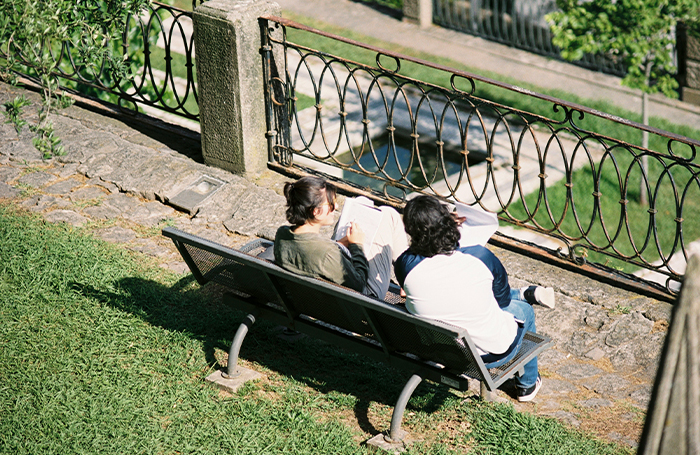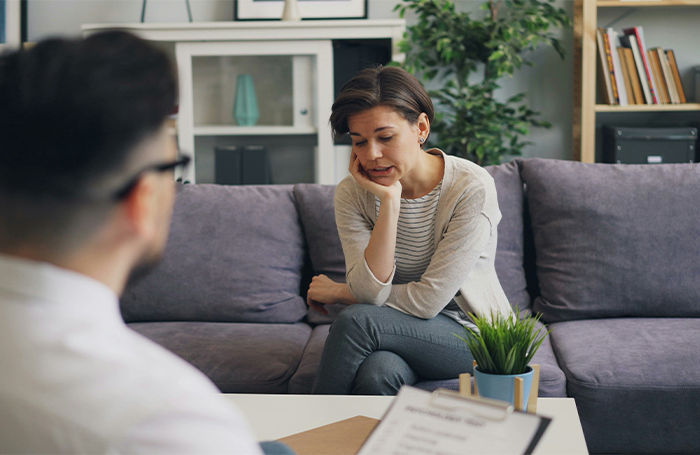Mental Health Awareness Week takes place annually in May, bringing the UK together to focus on improving mental health. We have created a list of resources for our members to help maintain a mentally and physically healthy work-life balance throughout the entire year. This includes practical guidance and support, as well as articles and initiatives discussing the link between good design and mental health and wellbeing.
Supporting mental wellbeing
The stigma associated with the subject of mental health can often lead to practices not knowing where to start when it comes to supporting employees. Learn more about what can be done to create a healthy working environment.
What should be on your mental health checklist?
Read about the five key principles that everyone can build into their daily routine for improved mental health and wellbeing.
What are the key benefits of becoming a Mental Health First Aider?
Learn about this workplace initiative to help support colleagues as part of a well-rounded, holistic wellbeing strategy that promotes a practice-wide supportive culture.
What is the Tipping Point Continuum, and how can it help with your mental wellbeing?
Experts from the Architects Benevolent Society share how this visual chart can be used to increase self-awareness and self-checking, a crucial part of keeping on top of managing mental health.
How can architecture practices make positive changes to workplace conditions?
Learn more about the RIBA workplace conditions survey and how one practice took action to improve its culture (exclusive to RIBA Members).
How to organise, delegate and de-stress your workload
Feeling overwhelmed? Executive Coach Karen Fugle provides top tips for taking control of your working week.
Top tips to manage stress
Learn to recognise the signs of stress and take back control. Karen Fugle explains how, once you master your stress, it can be useful in small doses (exclusive to RIBA Members).

Where can I get more information and support?
Please note: If you, or someone you know, is experiencing a mental health crisis, you should seek immediate assistance from a medical professional – please call 999, visit your closest A&E department or speak to your local crisis team.
All employers have a duty of care for the welfare of their employees. Anyone who is suffering from undue stress or mental health concerns should first approach their line manager, HR department, or a staff wellbeing officer (if the practice has one). However, when stress or anxiety is work-related, this may not be an easy thing to do.
Contacting the welfare team at the Architects Benevolent Society (ABS) is an alternative route, giving you a chance to talk about the situation and discuss the next step to accessing help and support. ABS has a well-established partnership with Anxiety UK that offers Mental Health Support via the charity’s UK-wide network of some 200 therapists.
This help is not restricted to those with a particular qualification or professional membership but is offered to anyone who has worked in the profession in the UK for at least one year.
View the ABS Architects’ Mental Wellbeing Toolkit (PDF)
For students, check out our Future Architects resources, including mental health and wellbeing guidance documents (exclusive to RIBA Student members).

Designing for mental wellbeing booklist
These titles are available on our RIBA Books online shop and feature information about designing and practising with mental health in mind.
- Happy by Design: A Guide to Architecture and Mental Wellbeing and The Happy Design Toolkit by Ben Channon
- Wellbeing in Interiors by Elina Grigoriou
- Healthy Homes: Designing with light and air for sustainability and wellbeing by Koen Steemers and Nick Baker
- Healthy Placemaking: Wellbeing through Urban Design by Fred London
- Design a Healthy Home: 100 Ways to Transform your Space for Physical and Mental Wellbeing by Oliver Heath
- Design for Mental and Behavioural Health by Shepley M. McCuskey
- Design for Dementia, Mental Health and Wellbeing: Co-Design, Interventions and Policy by Kristina Niedderer
- Restorative Cities: Urban Design for Mental Health and Wellbeing by Jenny Roe
- Housing for Hope and Wellbeing by Flora Samuel
- The Therapeutic Power of the Maggie’s Centre: Experience, Design and Wellbeing, Where Architecture meets Neuroscience by Caterina Frisone
- Building Health and Wellbeing by Stephen Emmitt
- Designing Future Cities for Wellbeing by Christopher T. Boyko
- The Healthy Indoor Environment: How to Assess Occupants’ Wellbeing in Buildings by Philomena M. Bluyssen
Additional resources
Homes’ influence on mental health boosts architects’ value
Discover the findings of RIBA’s Happy by Design survey to see how architecture can help influence mental wellbeing for homeowners (RIBA Journal)
Study Architecture Well and Practise Architecture Well
Aimed at architecture students and early-career architects in the UK, these free guides give practical advice on how to do well in study and practice, and, importantly, how to stay well as they cope with the opportunities, stresses, and strains.
View our other equity, diversity and inclusion (EDI) resources and initiatives.









